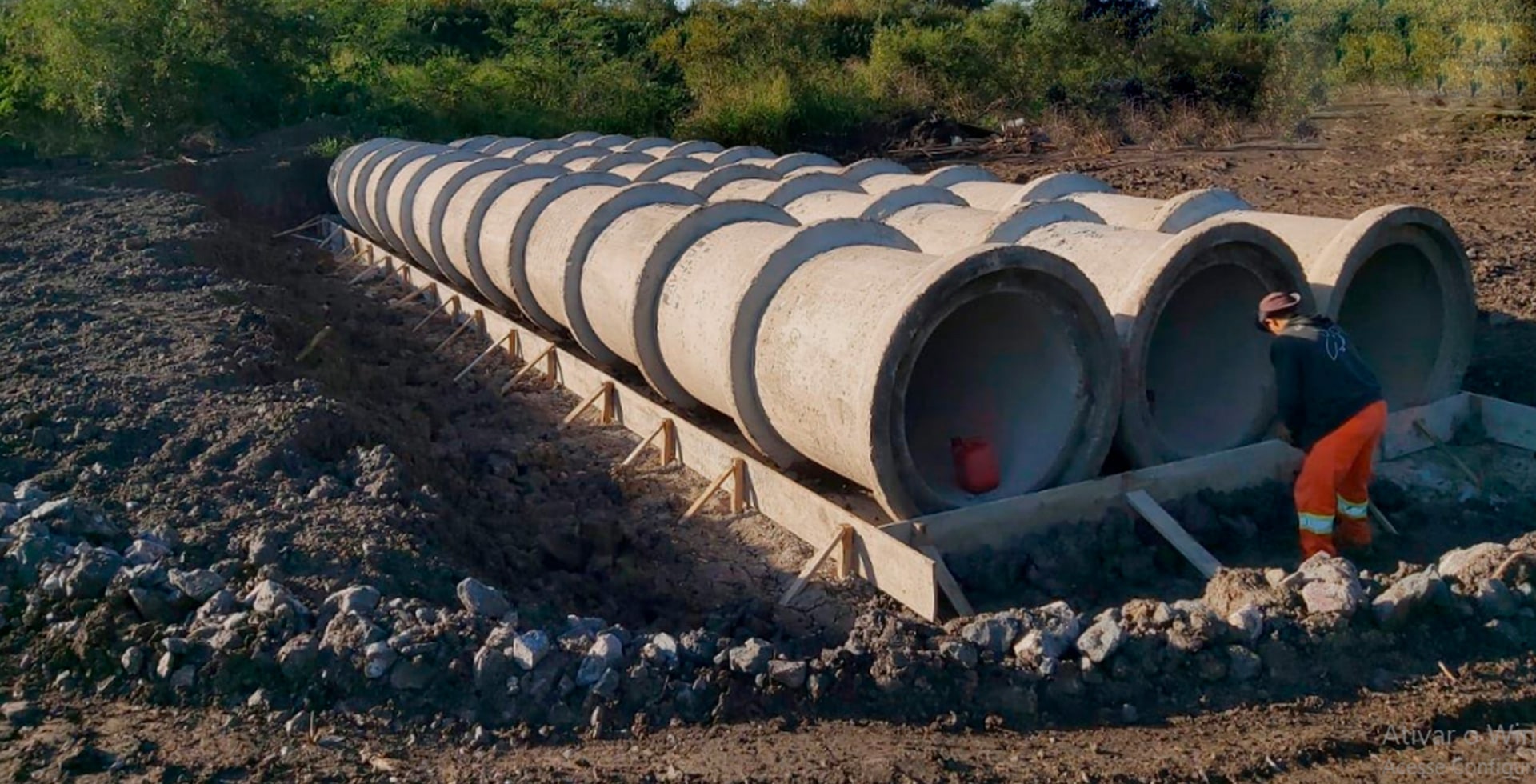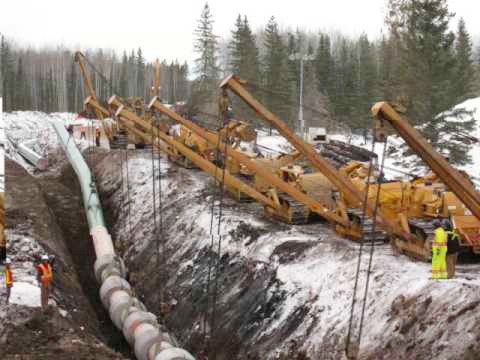Pipeline Construction Services: How to Align Budget and Quality
Wiki Article
The Vital Guide to Comprehending Pipeline Construction Solutions and Their Importance
Pipeline Construction solutions are basic to the transportation of vital sources such as gas, water, and oil. These services entail thorough planning and implementation, adhering to strict safety and security and environmental standards. As the industry adapts to modern-day challenges, understanding its effects and components comes to be progressively vital. What elements add to the growing importance of these services in today's economic situation? The adhering to areas will discover these crucial facets.Introduction of Pipeline Construction Solutions
Pipeline Construction solutions include a range of tasks important for the installation and upkeep of pipelines made use of to carry different compounds, including oil, gas, and water. These solutions are essential for assuring the safe and effective activity of resources from one location to an additional. The procedure normally starts with comprehensive planning and design, which takes into account governing needs, ecological factors to consider, and logistical challenges.Excavation and grading of the land are carried out to prepare the site for Pipeline setup once preparation is full. This is adhered to by the actual laying of the pipes, which involves welding or signing up with areas with each other to create a constant flow path. After setup, extensive screening is done to assure honesty and security. Upkeep services are also given to attend to any type of problems that might arise gradually. Overall, Pipeline Construction solutions play a crucial function in sustaining facilities for energy and water distribution.
Secret Elements of Pipeline Construction
An effective Pipeline Construction job relies upon a number of vital elements that ensure the safe and effective setup of the Pipeline system. Initially, complete site analyses are vital, as they identify the environmental and geographical factors that may impact Construction. Next, the selection of appropriate products, such as pipes and fittings, is necessary for securing sturdiness and compatibility with the transferred compounds.Furthermore, advanced Construction methods, including trenchless modern technology and directional drilling, improve effectiveness and minimize ecological effect. Efficient job management is another important component, coordinating labor, tools, and timelines to meet task goals.
Additionally, interaction amongst stakeholders, including designers, contractors, and regional authorities, warranties placement on task specs and demands. Lastly, complete top quality control measures throughout the Construction process make sure conformity with market standards and optimize the Pipeline's functional life-span. Collectively, these components develop the backbone of a successful Pipeline Construction task.
Safety Specifications and Laws in Pipeline Construction

Governing bodies, such as the Occupational Safety and Health And Wellness Administration (OSHA) and the Pipeline and Hazardous Products Safety And Security Administration (PHMSA), stated particular requirements that govern Construction methods. These include protocols for tools use, employee training, and emergency situation feedback procedures. By executing these criteria, Construction firms not only protect their staff members yet likewise protected public trust fund. Inevitably, rigorous precaution add to the lasting success of Pipeline jobs, guaranteeing they satisfy both operational and ecological expectations.
Environmental Factors To Consider in Pipeline Projects

Ecological considerations are indispensable to the preparation and execution of Pipeline tasks. These projects have to evaluate potential impacts on ecosystems, water resources, and regional wildlife. Carrying out detailed environmental influence assessments (EIAs) is crucial, allowing stakeholders to determine and alleviate risks prior to Construction starts.
Securing delicate areas, such as habitats and marshes, typically requires applying particular style attributes or different routing to lessen disturbance. Additionally, Pipeline drivers are tasked with developing approaches for preventing spills and leaks, which can have damaging effects on the atmosphere.
Engagement with local neighborhoods is vital, as public problems can bring about job modifications that boost environmental defense. Conformity with laws set by environmental agencies ensures that jobs satisfy sustainability requirements, cultivating an equilibrium in between infrastructure demands and eco-friendly preservation. Eventually, dealing with ecological factors to consider not just safeguards nature however additionally promotes area trust and task stability.
The Role of Technology in Pipeline Construction
Innovation plays an essential role in modern-day Pipeline Construction, enhancing effectiveness and accuracy. Advanced checking strategies permit specific planning and implementation, decreasing ecological effect and job delays. Furthermore, the combination of automation and robotics enhances procedures, minimizing labor expenses and improving safety on Construction sites.Advanced Checking Techniques
Advanced surveying techniques play an important role in the successful execution of Pipeline Construction projects. These methods utilize sophisticated modern technology to ensure specific mapping and evaluation of the surface where pipes will be installed. Methods such as Geographic Info Equipment (GIS), LiDAR (Light Discovery and Ranging), and 3D modeling make it possible for designers to imagine and assess the landscape, determining ecological worries and prospective challenges. By making use of these sophisticated tools, groups can enhance precision ready and positioning, significantly reducing the danger of errors throughout Construction. Additionally, real-time information collection enables for immediate changes and informed decision-making throughout the task lifecycle. Ultimately, these checking innovations add to improved effectiveness, safety, and sustainability in Pipeline Construction initiatives.Automation and Robotics

Economic Effect of Pipeline Framework
Pipeline framework plays a necessary role in assisting in and forming regional economic situations trade. By supplying a dependable ways of transferring oil, gas, and other products, pipes reduce transportation prices and boost supply chain efficiency. This infrastructure draws in financial investment, boosts job development, and cultivates financial development her latest blog in surrounding areas.The Construction and upkeep of pipelines contribute considerably to regional economic climates, creating countless work opportunities in various industries, from engineering to labor. The increase of tasks usually results in increased spending in local services, better bolstering economic task.
In addition, pipes boost power safety by making certain a stable supply of sources, which is critical for property requirements and industrial operations. As regions come to be adjoined via Pipeline networks, they obtain accessibility to wider markets, enhancing competitiveness and financial strength. The financial impact of Pipeline framework is complex, affecting both immediate neighborhood economic climates and wider local advancement.
Future Patterns in Pipeline Construction Services
The future of Pipeline Construction solutions is progressing in reaction to technical improvements, regulatory adjustments, and growing environmental hop over to here factors to consider. Developments such as drones and robotics are simplifying evaluation and upkeep processes, boosting security and efficiency. Automation is positioned to reduce labor costs and raise precision in Construction procedures. Additionally, the raising emphasis on sustainability is motivating business to take on green products and methods, straightening with global initiatives to minimize carbon footprints.Regulative structures are also adapting to resolve environmental influences, promoting better openness and responsibility in Pipeline tasks. The integration of smart modern technologies, consisting of real-time surveillance systems, is anticipated to boost the dependability and performance of Pipeline networks. As power demands change toward renewable sources, Pipeline Construction solutions will likely see a surge in tasks connected to biofuels and hydrogen transport. In general, these fads show a transformative duration for the Pipeline Construction industry, concentrated on development and sustainability.
Often Asked Concerns
What Kinds of Pipelines Are Frequently Created?
Numerous kinds of pipes are generally created, including oil, water, sewage, and gas pipelines - Pipeline Construction Services. Each offers distinct functions, promoting the transportation of essential resources throughout areas while adhering to safety and environmental regulationsFor how long Does a Regular Pipeline Job Take?
The duration of a common Pipeline project varies greatly, often varying from a number of months to a few years. Factors affecting this timeline consist of job complexity, regulatory approvals, and environmental factors to consider that need to be resolved.Who Controls Pipeline Construction Companies?
Pipeline Construction business are managed by different federal, state, and neighborhood firms, consisting of the Pipeline and Hazardous Products Safety Management (PHMSA) and state public energy compensations, guaranteeing conformity with safety and security and environmental standards throughout the Construction procedure.What Prevail Materials Utilized in Pipeline Construction?
Common products utilized in Pipeline Construction consist of pvc, polyethylene, and steel. Each product offers distinctive benefits such as resistance, adaptability, and durability to deterioration, making them suitable for different applications in delivering gases and liquids.
Exactly How Are Pipeline Construction Expenses Estimated?
Pipeline Construction expenses are approximated by assessing variables such as product costs, labor rates, project complexity, environmental considerations, and regulatory requirements (Pipeline Construction Services). Exact expense evaluation guarantees reliable budgeting and project preparation throughout the Construction procedurePipeline Construction services encompass an array of tasks necessary for the installment and upkeep of pipelines made use of to move different substances, including water, oil, and gas. An effective Pipeline Construction project counts on a number of key parts that ensure the efficient and risk-free installation of the Pipeline system. Advanced evaluating techniques play a crucial function in the effective execution of Pipeline Construction tasks. Different kinds of pipelines are commonly built, consisting of oil, water, gas, and sewage pipes. Pipeline Construction costs are estimated by assessing elements such as product expenses, labor prices, task complexity, ecological factors to consider, and regulatory needs.
Report this wiki page